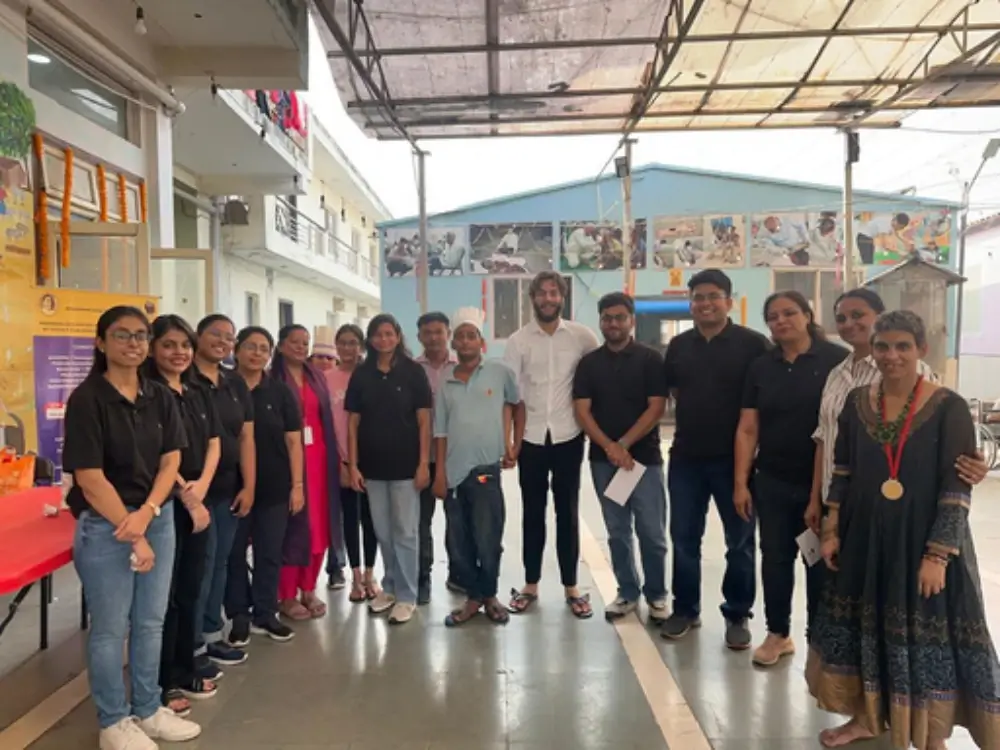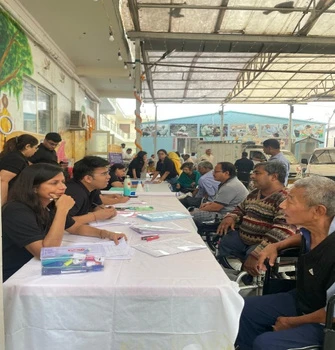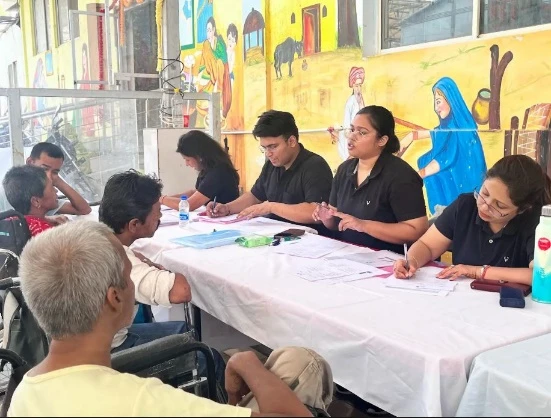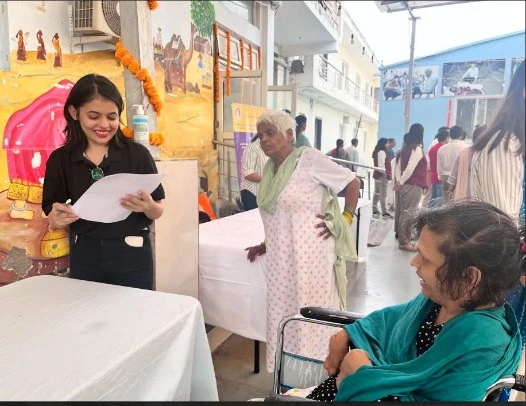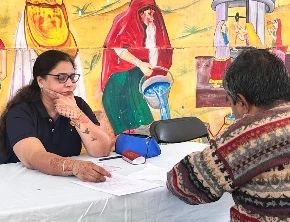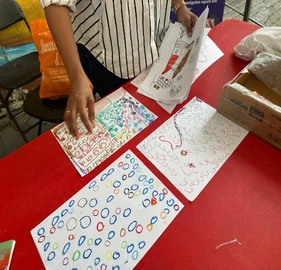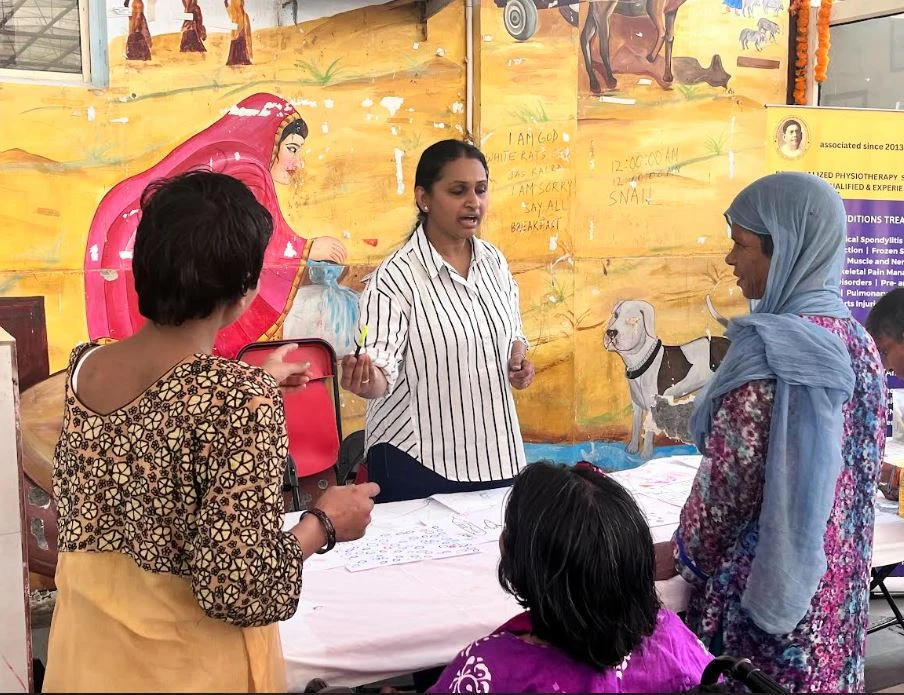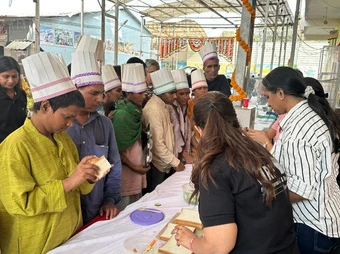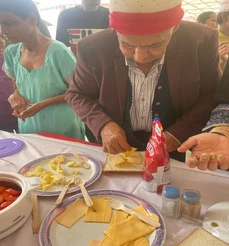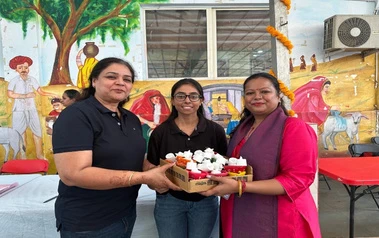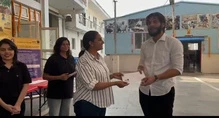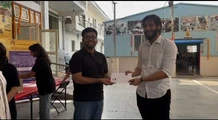NRF initiated its collaboration with The Earth Saviours Foundation (TESF) by conducting a multidisciplinary rehabilitation camp on 27 October 2024 at Bandhwari Village, Faridabad.
The camp was held to commemorate three important events : viz., World Mental Health Day (10 Oct), World Occupational Therapy Day (27 Oct) and International Stroke Day (29 Oct). Another highlight of the camp was that for the first time, NRF requested and was granted permission to use the logo of All India Occupational Therapy Association (AIOTA) : this further validated and endorsed NRF’s camp activities. The multidisciplinary team comprised of two Occupational Therapists, two Physiotherapists, a Speech Therapist, Psychologist and Child Guidance Counsellor, besides a Professional Expressive Arts Therapist and two student volunteers.
The camp was planned in detail via online discussions in the run-up for the same. The day started on a war footing with the team assembling supplies, loading them into three vehicles engaged for the camp and reached the venue in 70 minutes, and completed the camp set up in 30 minutes. The camp commenced at 11 am and concluded by 1:30 pm. TESF staff were very cooperative and had identified 30 residents for assessment and care.
The NRF team used screening and assessment tools to identify areas of concern in the domains of activities of daily living, motor, sensory, cognitive and speech issues. Due diligence was followed by the team from the outset in all aspects of camp activities. NRF team members enthusiastically interacted with the residents, offering valuable suggestions, guiding them on appropriate intervention strategies.
An expressive arts session was conducted at the venue by one of our volunteers Ms. Jyotsna Raman. The session offered participants – many of whom were non-verbal – a unique way to communicate and connect. The open- ended approach allowed individuals to engage with art freely, fostering self-expression and creativity. Participants explored their emotions and found a sense of accomplishment and validation. The session emphasized on personal involvement, enabling participants to make independent choices in their art-making process. This non-verbal communication enriched their emotional connection; the artworks reflected unique instances of creative expression and a sense of purpose. Overall, the session left a positive impact on their well- being.
The camp ended on a high, with all participants receiving handmade diyas made by our children with special needs at the Neuroaid Rehab Centre at Nangal Dewat, symbolizing hope and inclusivity on the eve of Diwali. Prizes comprising personal grooming products that the residents use on a daily basis, were distributed to three most enthusiastic participants. Mr Jas Kalra, the young entrepreneur running TESF, also took time out to interact with the NRF team and handed over Letters of Appreciation to our volunteers. NRF acknowledged the staff at TESF for their support, with a token of gratitude.
NRF proposes to organize regular follow-up sessions to maintain the benefits of expressive arts therapy as a supplementary intervention in overall well-being and community building, amongst the residents of TESF. NRF also desires to explore further collaborations involving creative arts therapy or expressive arts therapy (ExAT) for caregivers, senior citizens, and mental health practitioners; this could provide them with a platform for emotional expression, stress, relief, and connection. Such programs would further enhance NRF’s role in promoting holistic well-being within the community. NRF is keen to integrate these therapeutic approaches into its existing framework and future outreach efforts.


